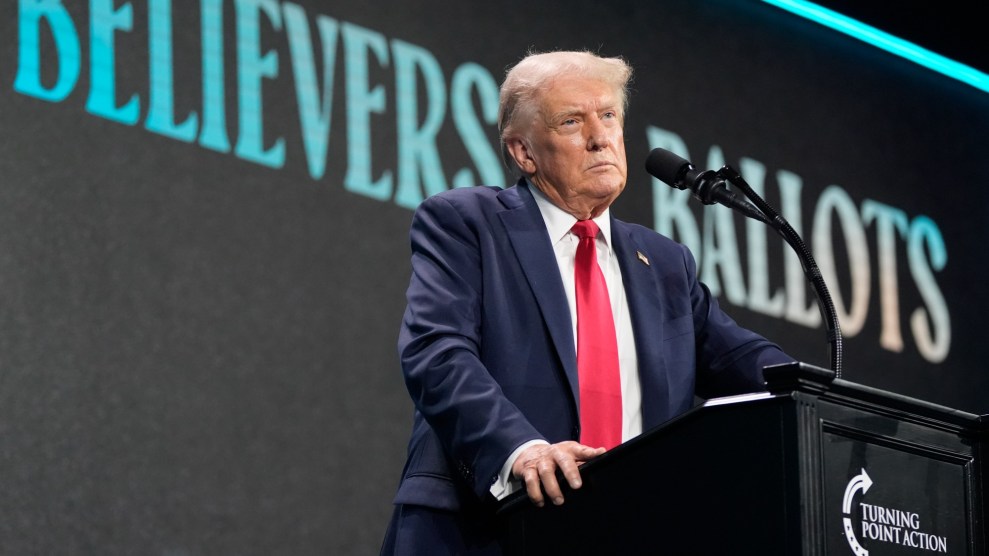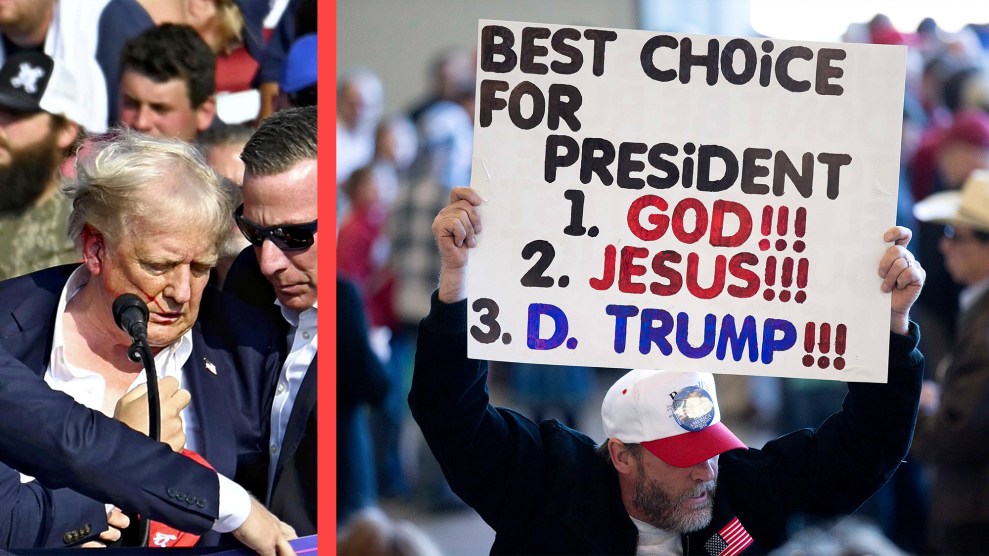The role of religion in American politics has changed profoundly since fundamentalist preacher Jerry Falwell and conservative direct-mail mogul Paul Weyrich co-founded the Moral Majority in 1979. Back then, the failure of Christians to appreciate their power at the ballot box over issues they saw as challenging their faith—abortion topped the list, but also prayer in schools, homosexuality, and women’s rights—was seen as an opportunity to galvanize a voting bloc for conservatives. The Moral Majority’s support of candidates who would represent those interests as elected officials unleashed a powerful resource in the Republican Party. The Moral Majority disbanded in 1989, but by then many offshoots had appeared: the Christian Coalition, Focus on the Family, and the Family Research Council. Evangelical and Christian voters had largely made the Republican Party their home.
Donald Trump tapped into and exploited, and was exploited by, this long history of disaffected voters. In him, a radical-right strain found its voice. Some call themselves “Christian nationalists” while others reject that label, but the movement, by any name, has a distinctly different character from your grandmother’s Moral Majority.
Our November+December issue investigates the Christian nationalist movement that aspires to take over government at all levels, from school boards and state legislatures to Congress and the Supreme Court. Its prominent influencers, ties to militias, and pervasiveness across civil society reveal a radical movement hiding in plain sight. Read the whole package here:




















